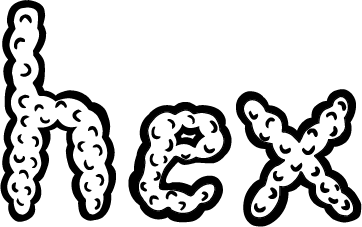I was once on a plane that suffered a monumental loss. High above a green and turgid swath of Florida, one of the aircraft’s giant white engines began smoldering like a marshmallow. This mechanical death announced itself with a muted pop! Had a large pumpkin been pushed from a third-story window onto sod? Upon waking, my first thought was: absolutely.
“Oh, for Christ’s sake.” The man in the window seat ahead of me was audibly inconvenienced. Nothing close to frantic, just palpably displeased. You would have thought a gold, monogrammed button had escaped his business suit and rolled backward toward the little tin lavatory. He turned toward his window to assess things, revealing a tectonic profile unimpressed by the prospect of death. Here, was the distinguished, gray-brown hair of a glossy platypus, a fragrance suggesting an ongoing relationship with leather. One could reasonably assume this man carried a fountain pen made of malachite, that he kept various unmarked oils and tinctures in his medicine cabinet arranged by height. I imagined a leather journal on his nightstand filled with cryptic entries: Spiritual Bouillon; Sordid Women of the Mariana Trench; Gentle/Genteel Deprivations. I knew he knew how to remove a bustier in an urgent but generous manner. The engine belched a series of orange, staccato flames with no reaction on his part.
I unfastened my seat belt and pressed my forehead to the tray table. The dial performed a plastic Ash Wednesday. I slid my hand through the seats and found the man’s shoulder. Vicuna. “The smallest member of the camel family,” I said, caressing his coat. “Most of them die from terror when sheared.” I was instantly ashamed. My intent had not been to condemn him but impress him, and later—if we lived—consume him. “But who am I?” I confessed. “I daily associate with vermin.” Out the window, the wing released a series of metallic handkerchiefs to the gods. “Every night, for the raccoons, I set out pie pans filled with cat food.”
I felt the man take my hand from his shoulder and pinch it between his thumb and index finger as if it were a number for the next available butcher. The plane lost momentum. A flight attendant, professionally unsettled, swished past. An intercom crackled then slept. “There are fifteen of them, one albino with pink eyes, and I’ve named them all. Truman, Euripides, J.J., Astrid, Michelle.” People whimpered, retched. I remained undeterred in the brace position: “Beatrice, Telemachus, Turtledove, Conjunctivitis.” Somewhere below us, children spun in giant teacups, vomited chicken nuggets, asked to spin again and again. Their parents looked up to the sky and wished to be airborne.
When we landed—survived— and while the plane was chauffeured to the gate awash in emergency foam, I resumed a seated position and waited for the man to turn and face me, to tell me his name began with an F or a U. To show me that unamused mouth of his, ajar. But when the bell chimed and the plane door opened, he was the first to flee the scene in the name of productivity and industry. Importance.
Earlier, when the plane had departed Arizona, the only things below us had been a giant planet of tan sand and a tiny pale grid of a town and a magical skid of snow that I later learned were dunes of gypsum. What appeared cold had actually not been.
At the car rental, I told the agent: Vicunas are anxious creatures with exceptional hearing. They release a piercing whistle when threatened and always defecate in the same place, communally. Even so, they preclude domestication. Then I drove off, beyond the hot traffic and into the Everglades with no recollection of why I’d gone from there to here.
At one point, I stopped and rented a bike from a park ranger. On a trail littered with hungry alligators, I came to the realization there were two types of aliens: corporate men and the women who desired them. To punish myself, I got off the bike and walked amongst the alligators, but once again that day, death wanted nothing of me. Later, I drove and drove, north and then west, until I found the magical skid of snow I’d flown over, which was not snow but gypsum, which, you should also know, is not sand.
I forgot: there is a third type of alien. It’s a child who presents as a child but has no need for entertainment. A child who never says, “More, more.”
_________
Whitney Collins is the author of RICKY & OTHER LOVE STORIES, which was longlisted for The Story Prize, and BIG BAD, which won the Mary McCarthy Prize, a Gold Medal IPPY, and a Bronze Medal INDIES. She received a Distinguished Story from The Best American Short Stories, a Pushcart Prize, a Pushcart Special Mention, and the American Short(er) Fiction Prize. Her stories have appeared in American Short Fiction, AGNI, The Idaho Review, Gulf Coast, and swamp pink, among others.
